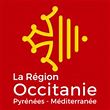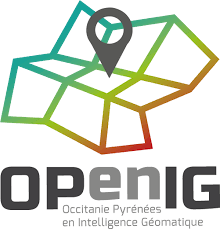The PEP-BIOccIA project (2024-2026) aims to improve medium and long term biodiversity conservation planning in the Occitanie region. The project will result in the creation of a software tool that provides access to annually updated maps of natural habitats and forecasts the probable distribution of species across the entire regional territory, both today and by 2050.
To achieve its sustainable development goals, the Occitanie region aims to place biodiversity conservation at the heart of its land-use planning model. To this end, the region has committed to providing digital tools at the regional level, dedicated to stakeholders in ecology and territorial planning.
In this context, the PEP-BIOccIA project seeks to develop a software capable of producing annually-updated accurate maps of natural habitats and the known (or likely) geographical distribution of plant and animal species across the entire region.
The current data on natural habitats and species distribution is heterogeneous, incomplete, not sufficiently updated, and often inadequate for the planning and implementation of biodiversity conservation policies over the medium and long term.
Thanks to artificial intelligence (AI), the PEP-BIOccIA project will address two main objectives:
- create annually updated maps of natural habitats, based on satellite image analysis and the European EUNIS standard nomenclature. These maps will be designed specifically to meet biodiversity preservation needs at the regional level and will be interoperable with the Large-Scale Land Occupation (OCSGE) database from IGN, the Inter-departmental Land Occupation (OCSID) project by OPenIG, and the National Habitat Mapping (CARHAB).
- provide predictive maps using AI models to estimate species presence in the various natural habitats of the region, including the “white zones” where no field observation data is available. The project will also allow simulation of species distribution by 2050, considering the expected effects of climate change on natural habitats.
The data produced will serve as a foundation for creating indicators to monitor public policies supporting biodiversity in the Occitanie region. These indicators will enable public authorities to plan their ecological transition in line with regional, national, and European strategies for biodiversity conservation and land-use planning.
All data and indicators will be made freely accessible via various platforms, including the OPenIG data portal, the Bioccitanie website, and the Theia Data Terra center. The data will be updated annually in a semi-automated manner to ensure current information while minimizing the energy consumption required for AI processing and analysis.
Although conducted in the Occitanie region, the project’s methodology and tools are designed to be replicable across France, contributing to improved public policies at all levels: national (e.g., National Biodiversity Strategy 2030), regional (SRADDET, Regional Biodiversity Strategy, Green Pact), and local (SCoT, PLU/PLUi).
Led by the Occitanie Region for a period of three years, the PEP-BIOccIA project brings together OPenIG (regional geographic data platform), TerrOïko, and the CNRS via the Center for Functional and Evolutionary Ecology (CEFE) and Data Terra (digital research infrastructure).
The project is a winner of the "Innovative AI Demonstrators for Ecological Transition" call for projects, led by Ecolab/Greentech Innovation, the Ministry of Ecology, and the Banque des Territoires.
TerrOïko is primarily involved in two key areas:
- designing AI models to predict the current and future geographical distribution of species (considering different potential climate scenarios);
integrating the technical components of the project into the final software tool, which will process the data, run the AI models, generate the maps, and allow for the visualization and dissemination of the results.
Support and partners
|
|
|
|

Identity card
- Call for Research : Demonstrators of Innovative AI for the Ecological Transition of Territories
- Funding : France 2030 Plan / Banque des Territoires
- Acronym : PEP-BIOccIA
- Full Title : Ecological Planning for the Preservation of Biodiversity in Occitanie through the use of Artificial Intelligence
- Keywords : cartographie, milieux naturels, distribution d'espèces, IA, modélisation, planification écologique
- Coordinator (Name and Organization): Occitanie region
- Other Partner Organizations : OPenIG, OPenIG, Centre for Functional and Evolutionary Ecology (CEFE), Data Terra
- Total Budget : € 2.2 M€
- Total Aid Requested : € 1.4 M
- Project Duration : 36 months
Ressources
- 1st workshop



